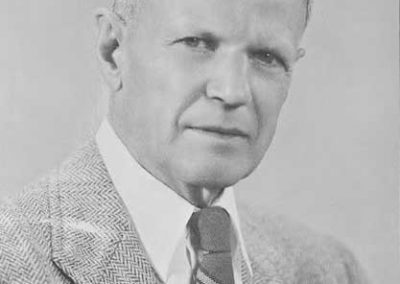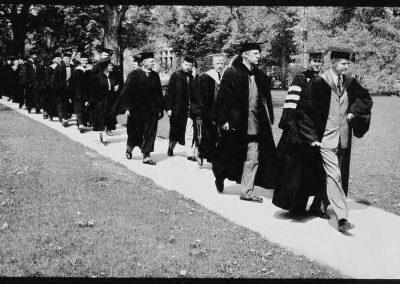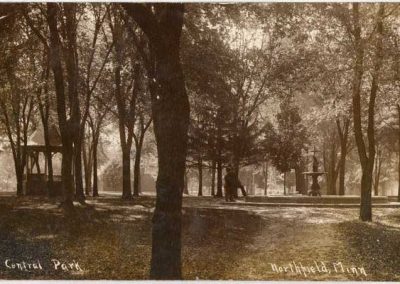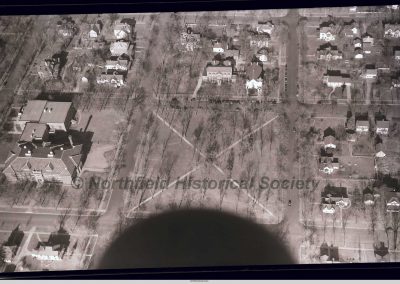The Central Park Controversy
Leslie Moore
In 1948, in response to the town’s growing population, the Northfield Board of Education voted to close College Street and convert Central Park—originally designed by the town’s founder, John W. North—into a playground for the adjacent high school (now Carleton College’s Weitz Center).
The Northfield Improvement Association opposed the plan. Led by Leal Headley, the group filed suit with the Minnesota Supreme Court seeking to preserve the park as it was. A Carleton alumnus from the class of 1907 who had returned to the college to teach philosophy, Headley spearheaded the charges against the school district. Nevertheless, every day of the trial, Headley picked up school superintendent Erling Johnson so that they could drive to the St. Paul courtroom together.
At the trial, the Northfield Improvement Association argued that John W. North had donated the land to the town of Northfield in 1856 with the intended purpose of it being a “public square.” The Supreme Court ruled that Central Park had been given to the town for the common use of the entire Northfield public, and that the high school’s changes would alter and limit that purpose.
Though College Street was eventually closed to make room for an addition onto the high school (since razed), Central Park’s crisscrossing paths and benches look much as they did when the park was originally designed.
Leal Headley
Professor Headley was also the author of Carleton College: The First Century, which chronicles the major events and character of the college in its first 100 years. Source The Voice: 1965
Leading the Academic Procession
As one of the longest-serving members of the faculty in 1951, Headley had the honor of leading the staff on the way to commencement. Source The Voice: 1965
Central Park
This photo of Central Park taken in 1910 was turned into a postcard. It was, and remains today, a beloved and well-recognized spot in Northfield. Source Carleton College Digital Archives




Recent Comments